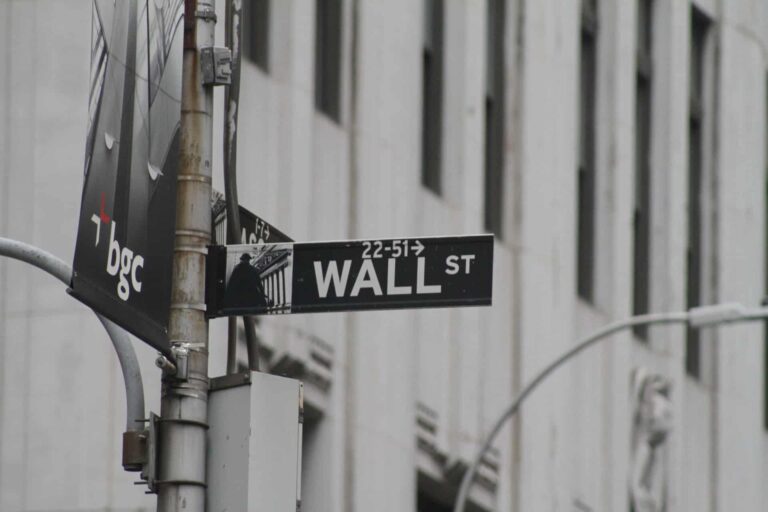In a market economy, the exchanges between buyers and sellers in a free market govern the production and distribution of commodities and services. It is a system built on the ideas of competition, supply, demand, and the pursuit of profit. In a market economy, prices are set by the forces of supply and demand, and businesses are free to compete for customers.
Numerous nations have embraced this method because it is effective in fostering prosperity and economic progress. In this article, we will explore the key features of a market economy and how it works.
Table of Contents
What is a market economy
A market economy is an economic system in which the costs of goods and services are determined by supply and demand. Individuals and companies are free to exchange products and services in this form of economy without much interference from the government. Prices for goods and services are determined by the dynamics of supply and demand in the market, and both producers and consumers act in their own best interests.
In a market economy, the government typically limits its role to enforcing laws and regulations that protect property rights and promote competition. This allows for greater efficiency and innovation in the economy, as businesses are incentivized to produce goods and services that are in demand by consumers.
The fact that a market economy promotes a great deal of personal freedom and choice is one of its key benefits. Consumers are free to choose the goods and services they want to purchase, and businesses are free to produce whatever they believe will be profitable.
The risk of market failures and wealth inequality are two major disadvantages, though. All things considered, a market economy is a dynamic and intricate structure that greatly influences the way the world is now.
Advantages of a market economy
The market economies have many advantages, which we need to cover. Here are a few key disadvantages:
- Economic efficiency: In a market economy, resources are allocated based on supply and demand. This leads to greater efficiency in the production and distribution of goods and services. Because of this, companies are motivated to create goods and services at the lowest possible cost, hence assisting in maintaining low consumer pricing;
- Individual freedom and choice: Individuals can make their own economic judgments in market economies based on their own self-interest. This means that consumers have the freedom to choose the goods and services they want to buy, and businesses have the freedom to produce whatever they believe will be profitable;
- Flexibility and adaptability: Market economies are flexible and adaptable to changing circumstances, such as changes in consumer preferences or technological advancements. This allows businesses to adjust their production and pricing strategies in response to market conditions;
- Variety and diversity: In market economies, companies can manufacture profitable products. Consumers have a wide range of goods and services to choose from. Today’s consumers have access to a wide variety of goods that can enhance their quality of life;
- Encourages innovation and technological advancements: Market economies encourage businesses to innovate. They also encourage businesses to develop new technologies in order to gain a competitive advantage. Technology may significantly advance as a result, and products and services may become of higher quality.
Disadvantages of a market economy
While market economies have many advantages, there are also some potential drawbacks. Here are a few key disadvantages:
- Income inequality: In a market economy, there is often a significant wealth gap between the rich and the poor. This is because the market rewards those who are successful, while those who are not successful may struggle to make ends meet. This can lead to significant income inequality and social unrest;
- Market failures: Market economies are not always perfect, and there are times when the market fails to allocate resources efficiently. When firms have no financial incentive, they may fail to deliver public goods like clean air or water. For instance, the market may fail to deliver public goods like clean air or water;
- Instability and economic cycles: Market economies are subject to economic cycles, with periods of expansion and contraction. Due to economic volatility, people and businesses may struggle financially when the economy is weak;
- Lack of social prioritization: In a market economy, businesses primarily focus on making a profit rather than addressing social issues or meeting the needs of marginalized groups. This means that some important social issues may be overlooked, such as access to healthcare or education.
Read also: Postcapitalism: what is it and what are the main principles of this potential economic model
What is the role of consumers
Consumers play a crucial role in a market economy. In this type of economic system, businesses produce goods and services based on the demands of consumers. This means that consumers have a significant amount of power in shaping the economy.
One of the key roles of consumers in a market economy is to signal their preferences through their purchasing decisions. When consumers demand certain goods and services, businesses respond by producing more of those products. By doing this, firms may more effectively allocate resources and provide goods and services that are in great demand.
Customers can also affect how much products and services cost. Price hikes typically occur when a product is in high demand. On the other side, prices typically decrease when there is less demand. This implies that consumers can influence the market by deciding whether or not to purchase particular goods.
Read also: The 5 major forces shaping the global economy of the future












